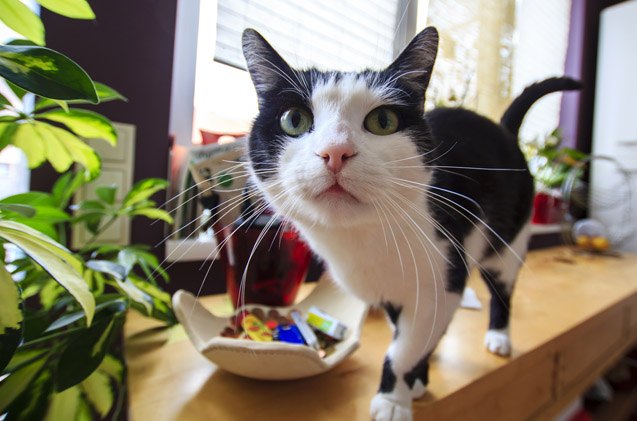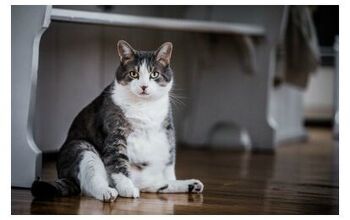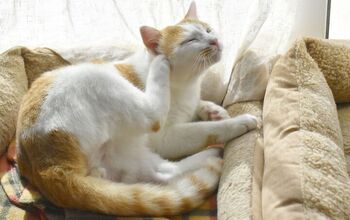Why Cats Aren’t Like Other Domesticated Pets

Cats make wonderful pets for a variety of reasons. They’re fun and amusing, they like to lounge around and cuddle, and they have their own unique ways of showing you how much they care about you. But other domesticated pets can be just a fun and just as loving. So what makes cats different from other pets? Check out a few of their distinguishing features below.
The Research on the History of the Human-Cat Bond
When researchers worked on analyzing the DNA of hundreds of cats, including those dating back to ancient times, what they realized is that cats basically domesticated themselves, finding their way into farming communities where rodents were abundant.
Related: Cats Are So Cool They Domesticated Themselves
As cats integrated more into the lives of humans, they started traveling around the world with people, but humans didn’t actually control the breeding of these cats for a long time. Instead, experts believe that humans have only been intermittently involved in breeding cats for less than 1,000 years. Compare this with other domesticated animals, such as dogs, who have been bred for thousands of years.
Differences Between Cats and Dogs
Experts have also conducted some experiments to see how cats are different from dogs, especially when it comes to showing you affection. Some people tend to think that dogs care about their owners more than felines do because they’re more outwardly affectionate.
Related: Your Cat Really Likes Spending Time with You!
As an example: experimenters wanted to know what happens when you put a dog into an unfamiliar environment and they’re alone. They concluded that dogs tend to panic and will gladly return to their owners once they see them again. Cats, on the other hand, will be more likely to check out the new space, and they won’t be as affected by their owner’s departure and return. This might indicate that cats won’t look to you for guidance when they’re placed in a situation that’s new to them.
What does this all mean? It certainly doesn’t mean that your cat doesn’t care about you. It just means that your feline friend prefers doing things on her own terms. And, unlike dogs, cats may not need their humans to feel safe or to figure things out. Yet, there are also plenty of cat owners who will tell you that they know their cats cry for them when they aren’t around, and their cats happily greet them at the door when they return, waiting for attention. Other cat owners will even tell you about how depressed their cats get when they go on vacation, and how relieved and content their pets are when they finally come home.
Once you understand feline behavior, it’s clear that they have their own ways of showing affection to their human family. For example, rubbing against your leg isn’t just a way to mark you with their scent. Instead, when a cat raises her tail and rubs her whole body along your leg (her sides don’t have any scent glands to mark you as her territory), she’s showing you that she cares about you. Cats who are comfortable around one another will exhibit the same behavior. And in the same way that cats who get along will lie down together, groom each other, and purr together, your cat will do the same with you, and it’s just further proof that your kitty does love you.
The Mysterious Feline
Experts have a lot of general things to say about domesticated felines, but every cat has her own personality. So you might encounter a kitty who happily performs tricks or plays fetch like a dog, while another kitty prefers spending quiet time alone and choosing when she wants to be around people. One thing is certain, though: from their unique story of domestication, to their distinctive habits, cats certainly are interesting creatures that can’t easily be compared to other pets.

Lisa Selvaggio is a freelance writer and editor, and our resident cats-pert, with certifications in pet nutrition and pet first aid. She enjoys producing content that helps people understand animals better so they can give their pets a safe and happy home.
More by Lisa Selvaggio






















